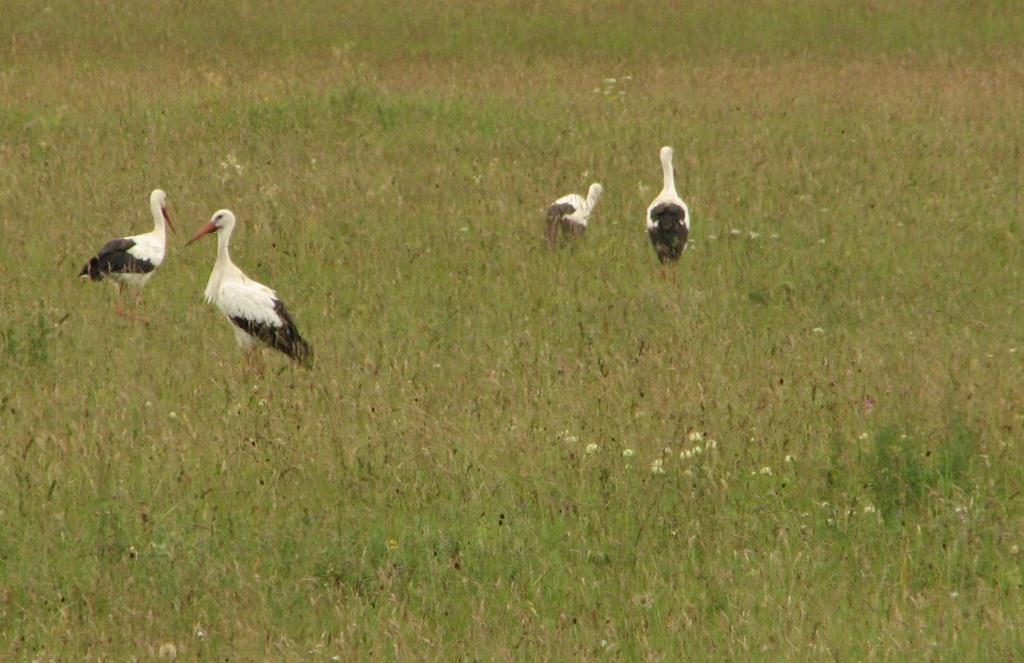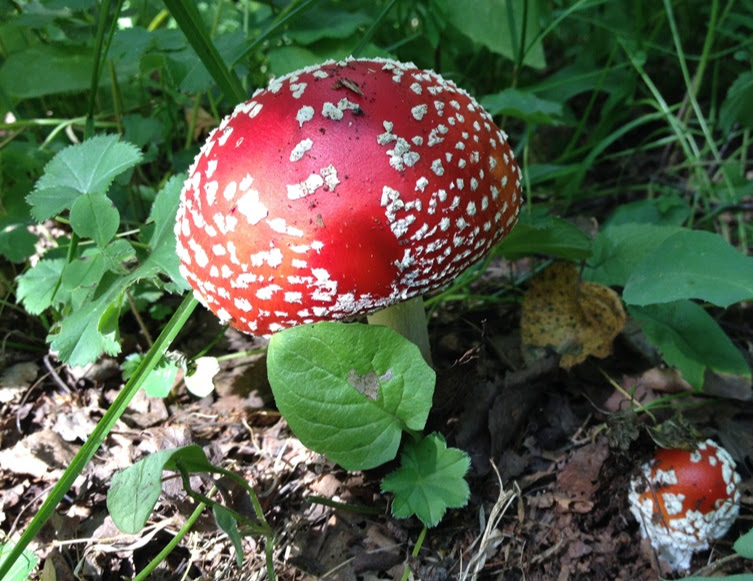Browse by taxonomy
Simple search by name
White storks (Ciconia ciconia)
Taxon: Ciconia ciconiaAuthor: David Tarkhnishvili
Comment: 16. 07. 2012, vicinity of lake Madatapa
Uploaded by: Tarkhnishvili

Download full size image 1024 X 663
Name According To: http://datazone.birdlife.org/species/taxonomy
Species: ciconia
Taxon Rank: Species
Scientific Name Authorship: (Linnaeus, 1758)
Vernacular Name: White Stork
Georgian Name: თეთრი ყარყატი (ლაკლაკი)
GBD Remarks:
Conservation Status (International): IUCN status (international) Least Concern, ver 3.1. Definition (This species has an extremely large range, the population trend increasing).
Conservation Status (national): National status in the Georgian Red List (2006) VU (D1): (Population size estimated to number fewer than 200 – 225 mature individuals, living on the edge of its global range).
Economic importance (national): Currently absent. Potentially it is attracting for tourists in villages in Javakheti. Loved bird in southern Georgia.
Monitoring methods: nest counts in villages
Ongoing research: Regular counts executed ones in four years (Institute of Zoology, Ilia State University, contact – A. Abuladze).
Specific relevant information: White Stork in Georgia is considered as a rare migratory breeder, with limited breeding range. During breeding season species occurs only in Southern Georgia - at the Javakheti Upland (Abuladze, 1987; Abuladze et al., 1986; Abuladze & Eligulashvili, 1986; Kutubidze, 1985; Zhordania, 1962). The breeding area covers Akhalkalaki and Gomareti lowlands, Tzalka hollow, slopes of the Abul-Samsari and Javakhethi ridges. All known nests are located between 1250 - 2400 m a.s.l. 50-70 breeding pairs.
Relevant website: http://www.iucnredlist.org/details/106003835/0
Bird of the Year 2001 - White Stork - http://www.bcug.narod.ru/BirdofYear2001.html
Why to monitor: Species rare and important for conservation. Flagship species for Southern Georgia. Small breeding area. Very specific nest-sites selection – White Stork nests almost only in human settlements. Good visibility of the nests. All nests are known for local inhabitants. Easy and cheap to monitor. Data on the numbers available from previous decades.
Preliminary suggestion: rely on the regular censuses of this species.
კონსერვაციული სტატუსი (საერთაშორისო): IUCN სტატუსი (საერთაშორისო) Least Concern, ver 3.1. განმარტება: ძალიან დიდი არეალი, შემცირება არ აღინიშნება.
კონსერვაციული სტატუსი (ეროვნული): საქართველოს წითეწლი ნუსხა (2006), VU (D1): (პოპულაციის ზომა 200-225 ზრდასრულ ინდივიდზე ნაკლებია, პოპულაცია გლობალური არეალის პერიფერიაზეა განლაგებული.
ეკონომიკური მნიშვნელობა (ეროვნული): ამჟამად უმნიშვნელოა. საინტერესო ფრინველებზე დამკვირვებელი ტურისტებისთვის. სიმპატიით სარგებლობს მოსახლეობაში.
მონიტორინგის მეთოდები: სოფლებში ბუდეების თვლა.
მიმდინარე კვლევები საქართველოში: რეგულარულ აღრიცხვებს ატარებს ილიას უნივერსიტეტის ზოოლოგიის ინსტიტუტი, საკონტაქტო პირი - ა. აბულაძე.
სპეციფიკური ინფორმაცია: საქართველოში იშვიათი მობუდარი, გადამფრენი სახეობაა, შეზღუდული არეალის მქონე. ბუდობა მხოლოდ სამხრეთ საქართველოში - ჯავახეთში (Abuladze, 1987; Abuladze et al., 1986; Abuladze & Eligulashvili, 1986; Kutubidze, 1985; Zhordania, 1962). ბუდობები ახალქალაქის და გომარეთის ვაკეზე, წალკის პლატოზე, აბულის და ჯახახეთის ქედების ფერდობებზე. ბუდეები განლაგებულია ზღვის დონიდან 1250-2400 მ-ზე. ყოველწლიურად 50-70 წყვილია შემჩნეული.
ვებსაიტები: http://www.iucnredlist.org/details/106003835/0 http://www.bcug.narod.ru/BirdofYear2001.html
რატომაა საჭირო მონიტორინგი: იშვიათი სახეობაა, სამხრეთ საქართველოში კულტურული მნიშვნელობა აქვს. მცირე საბუდარი არეალი. სპეციფიური ბუდობის ადგილები (თითქმის მხოლოდ სოფლებში). ადვილად დასათვლელი ბუდეები. მონიტორინგი ადვილია. წინა წლების ინფორმაცია ბუდეების რიცხვის შესახებ ხელმისაწვდომია (იხილეთ ბიბლიოგრაფია).
წინადადება: რეგულარული თვლები, ინფორმაციის დაგროვება მონაცემთა ბაზაში.
Page Authors: Kandaurov A. ,
Reference of occurrence in Georgia:
Conservation Status
This section is under construction
National Red List Status of have not been evaluated

